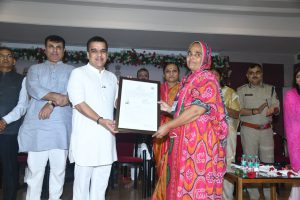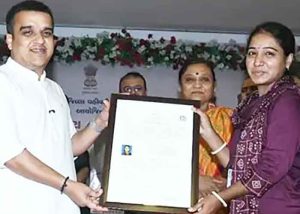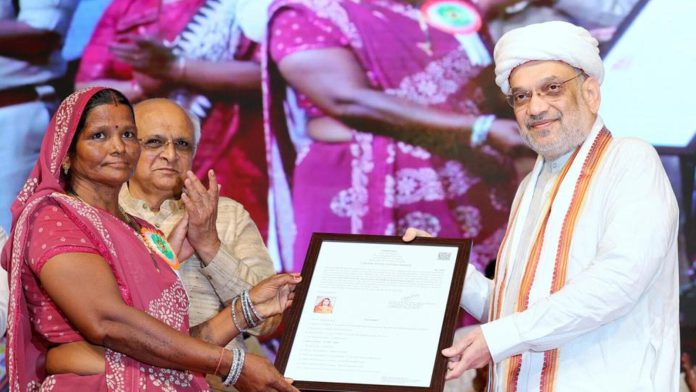Synopsis:
Citizenship granted to 185 Pakistani-origin Hindus in Gujarat under the CAA. Refugees recount years of hardship and finally call India their home. The ceremony, filled with emotion, highlights India’s stance on dignity, inclusion, and justice.
Qalam Times News Network
Rajkot, Gujarat | July 26, 2025
Citizenship was officially granted to 185 displaced Hindus of Pakistani origin during a poignant event held in Rajkot, marking a significant milestone in their long journey from persecution to belonging. These individuals, now Indian citizens, had lived for years in the districts of Kutch, Morbi, and Rajkot after fleeing religious persecution in Pakistan.

This grant of citizenship comes under the Citizenship Amendment Act (CAA), a law enacted in 2019 but implemented only in March 2025. The beneficiaries included mostly Hindus, along with a few Sikhs and Buddhists. Minister of State for Home Affairs, Harsh Sanghvi, handed over the certificates at a public ceremony, declaring, “You are now citizens of India. Keep smiling—your new life begins today.”
“Bharat Mata Ki Jai” Echoes Through Rajkot
As chants of “Bharat Mata Ki Jai” rang out, the atmosphere turned emotional. Sanghvi praised the refugees’ resilience, saying, “Some lost their husbands, others their homes—but they never gave up. I salute their strength.” He drew a sharp contrast between India’s pluralism and Pakistan’s systemic religious persecution, adding, “India respects every religion. If the world wants to see real human rights in action, look at Gujarat.”
Personal Stories of Pain, Courage, and Hope
Newly naturalised citizens didn’t hold back their emotions.
Bhavanaben Maheshwari, now residing in Rajkot, said, “I endured years of hardship. But today, I can finally say—I am an Indian.”
Champa Khambhala from Morbi added, “Life here is so much better. In Pakistan, we couldn’t even celebrate our festivals freely. I still have family there. I hope they, too, get this chance.”

CAA’s Impact and Gujarat’s Lead
Gujarat has become the leading state in implementing the citizenship process under the CAA. While 185 individuals have received legal status in this round alone, Assam has granted only two such approvals. The state government also pledged full access to welfare schemes for the new citizens.
Sanghvi questioned the silence of the global community over religious persecution in Pakistan, asking pointedly, “Why is there no outrage when Hindus are denied dignity and safety in other countries?”

This event wasn’t just a bureaucratic procedure—it was a moment of national reaffirmation. For many, it was the first time they felt seen, safe, and part of something greater. With their new citizenship, these individuals have not only received a legal identity—they’ve reclaimed their right to live freely and with dignity.








vmid14